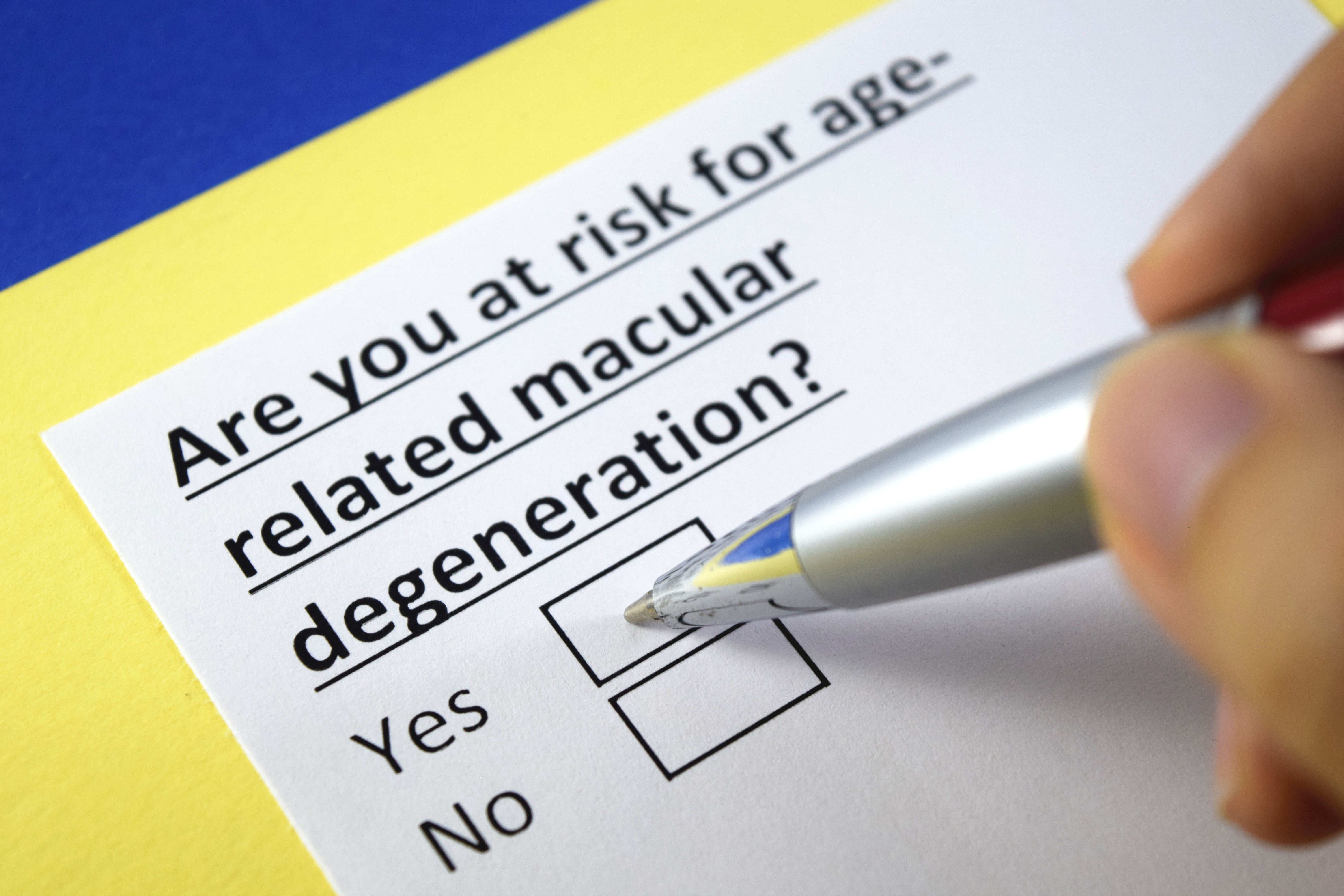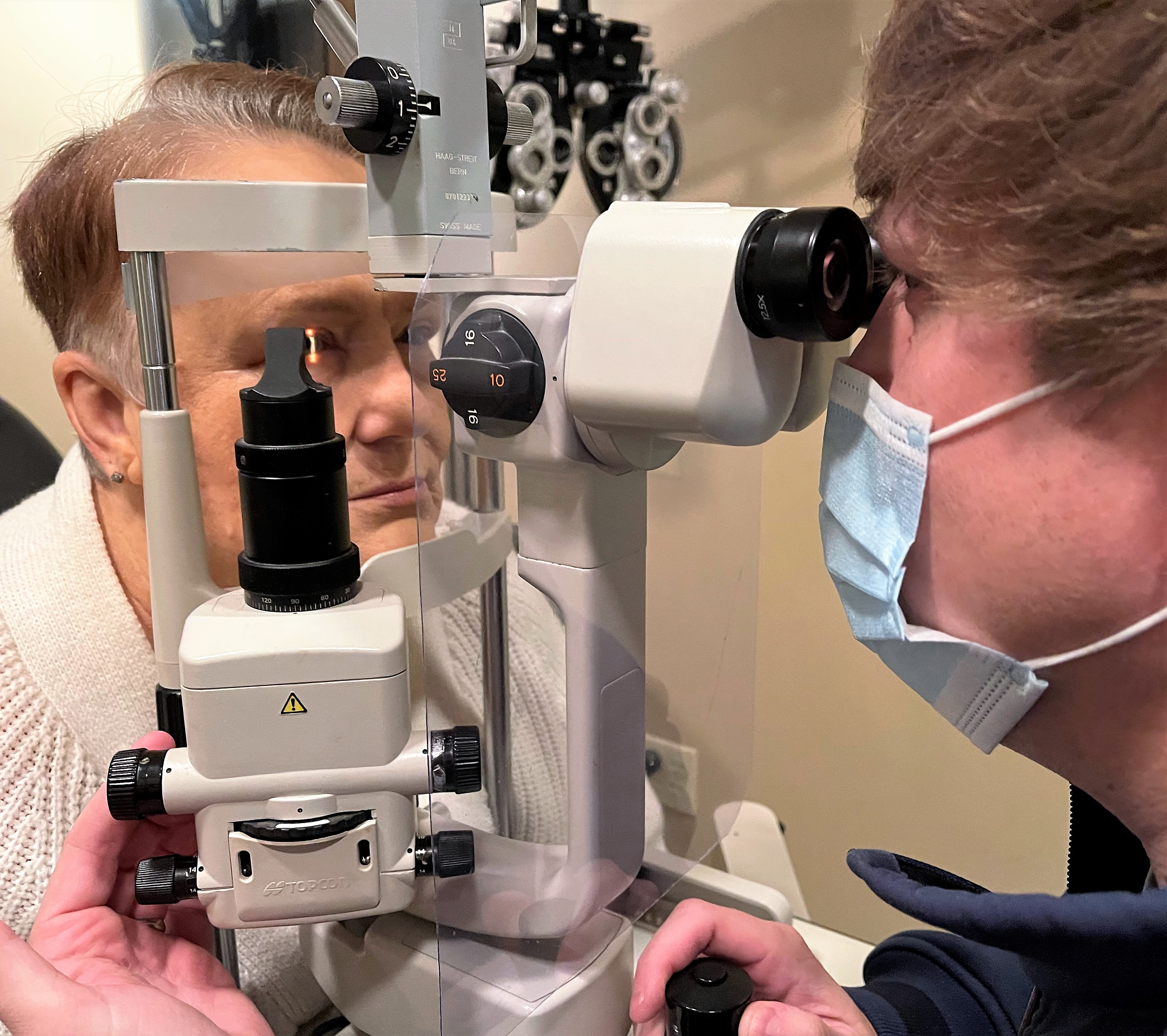As we get older, many of us find it harder to read fine print or to see clearly at night. But these limitations on vision are more an inconvenience than a concern, and most turn to reading glasses or progressive lenses to make up for it.
But there’s a much more serious form of vision impairment that can occur in older people. It’s known as age-related macular degeneration (ARMD), one of the leading causes of blindness in people over 50.
“Age-related macular degeneration affects a person’s central vision,” says Dr. Ben Pace, an ophthalmologist with Hattiesburg Eye Clinic. “As the disease progresses, the person gradually loses focus or the ability to make out fine details in the middle of their sight. While their peripheral vision may seem normal, they can eventually find things like reading or recognizing faces extremely difficult to do.”
The American Academy of Ophthalmology recognizes February as Age-Related Macular Degeneration Awareness Month. During this time, Dr. Pace and the entire medical team of Hattiesburg Eye Clinic join other vision providers across the country to raise awareness about ARMD—and more importantly, what people can do about it.
ARMD affects tissue within the retina at the back of the eye known as the macula. This area is responsible for seeing fine details, particularly within the center visual region. There are two types of the disease, dry and wet.
“Most cases of macular degeneration are dry, meaning that the macula tissues have thinned or deteriorated, or have formed abnormal deposits called drusen,” says Dr. Pace.
According to Dr. Pace, ARMD usually begins at this dry stage and later turns “wet” in some patients. “We refer to it as ‘wet’ because the disease begins to cause abnormal growth in the eye’s blood vessels, which can then cause them to leak.”
Early on, a person with ARMD may not notice any significant changes in their vision. Even so, it can still be identified with any of a number of diagnostic tests a doctor performs during an eye examination.
Eventually, though, vision problems will begin to arise. These include difficulty reading without extra light or magnification, distorted or blurred objects that may seem to “jump” when focused on them, or an inability to see details. A patient may also begin to notice a blind spot in the center of their vision.
There is no cure for most cases of ARMD, but there are ways to arrest its progression. The treatment used depends on which form of the disease you have, dry or wet.
“We usually begin patients with dry macular degeneration on an array of vitamins and nutritional supplements that help prevent or slow the progress of the disease,” says Dr. Pace. “We also encourage them to eat a diet rich in antioxidants, particularly carotenoid vegetables like kale, raw spinach and other dark leafy greens.”
Dr. Pace also says lifestyle habits like avoiding smoking or wearing polarized sunglasses outdoors can also make a difference. “Adopting these changes may certainly help prevent the disease from getting worse.”
With wet ARMD, a patient may require injections of an anti-VEGF drug. Injected on a regular basis and usually by a retinal specialist, these drugs stop the production of vascular endothelial growth factor (VEGF), a protein which promotes vascular growth. In some cases, a physician may recommend other treatment options to a patient with wet ARMD.
But as with other age-related diseases like cataracts or glaucoma, detecting ARMD as early as possible may have the greatest impact on disease progression. Because ARMD may already be developing, patients shouldn’t wait until they’re having problems, but should begin annual eye exams by age 40.
And, one group in particular should start regular exams even earlier—those with a family history of ARMD. “Because their risk is significantly higher, we recommend that patients with a family history of macular degeneration begin annual eye exams before they reach their forties,” says Dr. Pace.
The damage ARMD can cause to your eyesight is permanent. But caught early and consistently treated, you can significantly reduce your risk of blindness and protect your sight later in life.
Visit our webpage for more information on age-related macular degeneration. To learn more about how Hattiesburg Eye Clinic can improve your vision health, call 601-268-5910 (or toll-free 800-624-8254) or schedule a consultation with us online.




